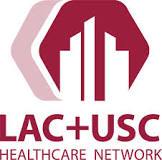Anti-TF Antibody (ALT-836) to Treat Septic Patients With Acute Lung Injury or Acute Respiratory Distress Syndrome
| Status: | Completed |
|---|---|
| Conditions: | Hospital, Pulmonary |
| Therapuetic Areas: | Pulmonary / Respiratory Diseases, Other |
| Healthy: | No |
| Age Range: | Any |
| Updated: | 11/11/2012 |
| Start Date: | April 2009 |
| End Date: | October 2012 |
| Contact: | Bee Y. Huang, MS |
| Email: | byhuang@altorbioscience.com |
| Phone: | (954) 443-8600 |
Efficacy and Safety Evaluation of ALT-836 in Patients With Sepsis and Acute Lung Injury/Acute Respiratory Distress Syndrome
This is a prospective, randomized (1:1), double-blind, multi-center, Phase II clinical study
to test the safety and efficacy of a recombinant chimeric anti-tissue factor antibody
(ALT-836) versus placebo in patients with sepsis and acute lung injury/acute respiratory
distress syndrome (ALI/ARDS). This study was divided into two parts and the first part of
the study has been completed. In the first part of the study, sixty patients were randomized
at a 1:1 ratio to receive one dose of the study drug or placebo. In the second part of the
study, ninety patients will be randomized at a 1:1 ratio to receive a multi-dose treatment
regimen of single doses every 72 hours up to a maximum of 4 doses of the study drug or
placebo, provided there are no safety concerns.
Tissue factor (TF)-dependent procoagulant activity and associated inflammatory processes may
play a role in the severity and progression of ALI/ARDS. Recent studies demonstrated that
TF levels were elevated in plasma and pulmonary edema fluid of ARDS/ALI patients compared to
control patients with hydrostatic pulmonary edema. These higher plasma TF levels were
correlated with increased mortality, fewer ventilation-free days, the presence of
disseminated intravascular coagulation and the presence of sepsis in patients with ALI/ARDS,
suggesting that systemic activation of coagulation may be clinically important in ALI/ARDS.
Moreover, the pulmonary TF levels in patients with ALI/ARDS were found to range between 0.5
and 2 nM, approximately 100-fold higher than simultaneous plasma levels, suggesting an
intra-alveolar source of TF. Thus, anti-TF antibody blockage of TF activity may therefore
provide an effective therapeutic mechanism for the treatment of inflammatory disorders such
as ALI and ARDS. This study will test the hypothesis that administration of anti-TF
antibody (ALT-836) to septic patients with ALI/ARDS will improve the clinical outcome by
shortening the duration of mechanical ventilation for these patients.
INCLUSION CRITERIA:
1. Suspected or proven infection
2. Hypoxemia: PaO2/FiO2is ≤300 mm Hg
3. Bilateral infiltrates consistent with pulmonary edema
4. Positive-pressure mechanical ventilation through an endotracheal tube
5. No clinical evidence of left atrial hypertension to explain bilateral infiltrates
6. Presence of at least three of the four SIRS criteria. If only two criteria are
evidenced, one must be temperature or WBC
Criteria 2 and 3 must occur within a 24-hour interval. The 48-hour enrollment time window
begins when criteria 2, 3, and 4 are met.
EXCLUSION CRITERIA:
1. <18 years
2. Inability to obtain consent
3. Patient, surrogate, or physician not committed to full support
4. Moribund state in which death was perceived to be imminent
5. Morbid obesity
6. Malignancy or other irreversible disease or condition for which 6-month mortality is
estimated to be >50%
7. Known HIV positive with known end stage processes
8. Prior cardiac arrest requiring CPR without fully demonstrated neurological recovery;
or New York Heart Association Class IV
9. Pregnant or nursing
10. ALI/ARDS induced by mechanical or chemical injury directly to the lung (including
burns, trauma, and near drowning)
11. >48 hours since all inclusion criteria are met
12. Neuromuscular disease that impairs ability to ventilate without assistance
13. Severe chronic respiratory disease, severe pulmonary hypertension, or ventilator
dependency
14. Chest wall deformity resulting in severe exercise restriction, secondary
polycythemia, or respirator dependent
15. History of organ transplant (including bone marrow)
16. Severe chronic liver disease, as determined by a Child-Pugh Score >10
17. Hemoglobin persistently < 7.0 g/dL
18. Platelet count <50,000/mm3
19. Prolonged INR >3
20. Bleeding disorders unless corrective surgery has been performed
21. Active internal bleeding
22. Major surgery within 24 hours before study drug infusion, or evidence of active
bleeding postoperatively, or plan for any major surgery within 3 days after study
drug infusion.
23. Diffuse alveolar hemorrhage from vasculitis
24. Known bleeding diathesis
25. Presence of an epidural catheter or lumbar puncture within 48 hours before study drug
infusion or anticipation of receiving an epidural catheter or a lumbar puncture
within 48 hours after study drug infusion
26. Stroke within 3 months of study entry
27. Trauma with an increased risk of life-threatening bleeding
28. A history of severe head trauma that required hospitalization, or intracranial
surgery within two months of study entry
29. Any history of intracerebral arteriovenous malformation, cerebral aneurysm, or
central nervous system mass lesion
30. Uses of certain medications or treatment regimens such as chemotherapy,
unfractionated heparin, low-molecular-weight heparin, Warfarin, antithrombin III,
acetylsalicylic acid, glycoprotein IIb/IIIa antagonists, thrombolytic therapy, and
activated Protein C are restricted.
31. Participation in another experimental medication study within 30 days of study entry.
We found this trial at
22
sites
Yale University Yale's roots can be traced back to the 1640s, when colonial clergymen led...
Click here to add this to my saved trials
Click here to add this to my saved trials
Northwestern University Northwestern is recognized both nationally and internationally for the quality of its educational...
Click here to add this to my saved trials
Baylor College of Medicine Baylor College of Medicine in Houston, the only private medical school...
Click here to add this to my saved trials
University of Iowa With just over 30,000 students, the University of Iowa is one of...
Click here to add this to my saved trials
Memorial Sloan-Kettering Cancer Center Memorial Sloan-Kettering Cancer Center — the world's oldest and largest private...
Click here to add this to my saved trials
Mount Sinai Med Ctr Founded in 1852, The Mount Sinai Hospital is a 1,171-bed, tertiary-care...
Click here to add this to my saved trials
Click here to add this to my saved trials
Click here to add this to my saved trials
Saint Luke's Hospital St. Luke's Hospital, located in Chesterfield, Missouri, is a regional healthcare provider...
Click here to add this to my saved trials
Click here to add this to my saved trials
Click here to add this to my saved trials
Los Angeles County-USC Medical Center The origins of LAC+USC Medical Center date back to 1878,...
Click here to add this to my saved trials
Click here to add this to my saved trials
Click here to add this to my saved trials
University of Oklahoma The OU Health Sciences Center is composed of seven health-related colleges located...
Click here to add this to my saved trials
Click here to add this to my saved trials
Click here to add this to my saved trials
Baystate Medical Center Baystate Medical Center (BMC), in Springfield, Massachusetts, is an academic, research, and...
Click here to add this to my saved trials
Click here to add this to my saved trials
Saint Louis University Saint Louis University is a Catholic, Jesuit institution with campuses in St....
Click here to add this to my saved trials
Stanford University Stanford University, located between San Francisco and San Jose in the heart of...
Click here to add this to my saved trials












